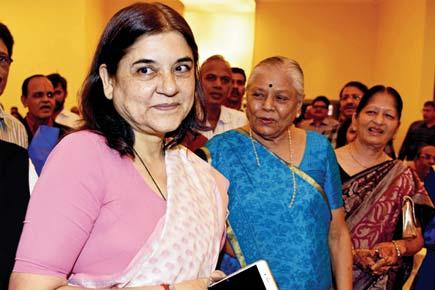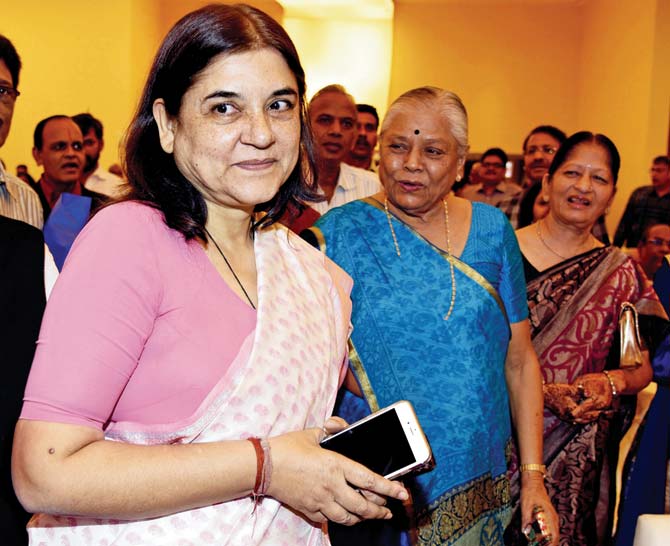There is something about numbers that is presented as superior. For instance, when you say you like something, there will always be some realist, yaniki cynic, who will snort “that’s all ok, but show me the numbers”

 There is something about numbers that is presented as superior. For instance, when you say you like something, there will always be some realist, yaniki cynic, who will snort “that’s all ok, but show me the numbers”.
There is something about numbers that is presented as superior. For instance, when you say you like something, there will always be some realist, yaniki cynic, who will snort “that’s all ok, but show me the numbers”.
The claim for numbers is that they are without prejudice. They have a meaning that cannot be twisted. They show you the facts on the ground, the nuts and bolts, the unvarnished truth and other realities you have to be a real man, metaphorically speaking, to handle.
ADVERTISEMENT

Maneka Gandhi
So, we are given to believe, that if we can digitise the world into numbers, dismiss ideas for data, we will automatically have justice.
Our minister of Women and Child Development, Maneka Gandhi, certainly seems to believes in numbers. She suggests that if we can digitise each imminent child, we can control sex-selection. As the writer Deepanjana Pal noted in a column online, while it’s not nice to think of women in terms of their male spouses, it is chilling to remember that she was once married to a man with a similar belief in numbers. Sanjay Gandhi was the chief architect of India’s family planning programme, notorious for its forced sterilisations with their numerical targets.
Numbers are seductive. Ask anyone on social media who gets numbers how often they check to see if their likes climbed from 200 to 300 and then 300 to 500. Numbers are exacting lovers, they demand you pay attention to nothing but them, they become the main and only point.
Numbers mesmerise and they paralyse. So, it has been with so many social change programmes — they become about the number targets and then, like glazed gamblers in front of slot machines, the targets become the focus, the only thing people see, while all of reality turns into blur on the margins of sight, neither seen nor heard nor apprehended.
Yet, this data-driven approach is always presented as the solution to attitudinal issues. We imagine that, because attitudes cannot be seen and enumerated, they are uncontrollable and they can be conquered by their opposite, that which is visible, tangible and uncontrollable. Numbers can tell you something about reality of course, but they can as well mask its complicatedness, which requires us to really look and think about what to do, rather than come up with one-size-fits-all bureaucratic controls.
Nor are numbers so free of attitudes. Under the Emergency’s family planning programme, the largest number of men and women subjected to forced surgical procedures were those of the poorest homes and the lowest castes.
We already know that the digitising of pregnancies will put the onus on women, who already have patchy control over their choices and that as usual, those penalised and ‘caught’ will be those already most
disadvantaged, with limited control over their lives.
But, over and above that, the digitising of pregnancies only further erodes the idea of privacy in our culture, using the pretext of protecting and empowering women. Rather than think of ways that will enable women to have greater control over their own bodies, give them a private right over themselves, a digitising programme like this strips them further of those rights. Women’s private rights are already very tenuous within the family space, and the State, through moves like this, merely extends rights over a woman’s body, without asking her consent. This is the attitudinal rationale behind the supposed rationality of numbers. It’s a great way for the administration to do nothing but create an atmosphere of policing — while making matters worse for people.
Paromita Vohra is an award-winning Mumbai-based filmmaker, writer and curator working with fiction and non-fiction. Reach her at www.parodevipictures.com
 Subscribe today by clicking the link and stay updated with the latest news!" Click here!
Subscribe today by clicking the link and stay updated with the latest news!" Click here!







